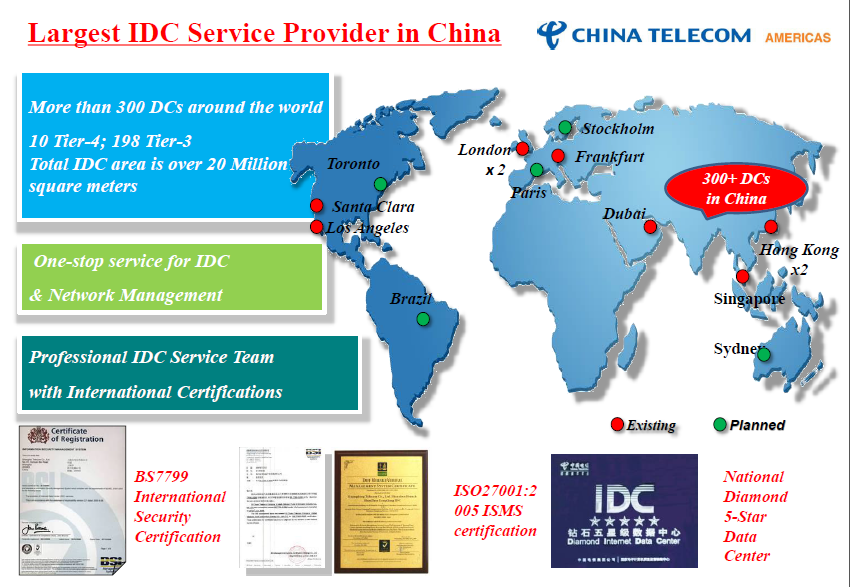China is Building a Nation-Spanning Data Center Network: Here’s Why It Matters
China is undergoing a massive digital transformation, and at the heart of this revolution lies a colossal undertaking: the construction of a nationwide data center network. This isn’t just about adding more servers; it’s a strategic move with profound implications for China’s economy, technological advancement, and global influence. Understanding the scope and purpose of this ambitious project is crucial to grasping the future of the digital landscape. This article delves into the details of China’s data center network, exploring its motivations, potential impacts, and the significance it holds for the world.
The Scale and Scope of China’s Data Center Ambitions
China’s vision extends far beyond individual data centers. It’s about creating a unified, interconnected network that spans the entire country. This network aims to:
- Optimize Resource Allocation: Distribute computing power based on demand, reducing latency and improving efficiency.
- Centralize Data Management: Consolidate data storage and processing, enhancing data security and facilitating data analysis.
- Support Emerging Technologies: Provide the infrastructure needed for advanced technologies like AI, 5G, and the Internet of Things (IoT).
The scale of this project is staggering. It involves:
- Mega Data Centers: Construction of massive data centers in strategic locations, often in less developed regions to promote economic growth.
- Fiber Optic Backbone: Deployment of a high-speed, low-latency fiber optic network to connect these data centers.
- Governmental Support: Significant government investment and policy support to drive the development of the network.
- Private Sector Involvement: Partnerships with major tech companies and data center operators to execute the project.
Why China is Investing So Heavily in Data Centers
The rationale behind China’s massive investment in data centers is multifaceted, driven by a combination of economic, technological, and strategic considerations.
- Boosting Economic Growth: Data centers create jobs, stimulate investment, and fuel the growth of the digital economy. They also attract associated industries, creating regional economic hubs.
- Advancing Technological Innovation: This infrastructure is the foundation for developing and deploying cutting-edge technologies like artificial intelligence, big data analytics, and cloud computing.
- Strengthening National Security: Secure and controlled data storage and processing capabilities are vital for national security and data sovereignty.
- Improving Data Governance: Centralized data management allows for more effective regulation and oversight of data flows, aligning with China’s data governance policies.
- International Competition: The global race for technological dominance demands robust digital infrastructure. China’s data center network positions the country as a key player in the digital economy.
The Potential Impacts: Opportunities and Challenges
The development of this nationwide data center network has significant potential impacts, both positive and negative.
Opportunities:
- Economic Growth: Boosts the digital economy, creating new industries and jobs.
- Technological Advancement: Accelerates the development and deployment of advanced technologies.
- Improved Efficiency: Optimizes resource allocation and reduces latency for businesses and consumers.
- Enhanced Data Security: Centralized data management can improve data security and resilience.
- Global Influence: Positions China as a leader in the digital infrastructure landscape.
Challenges:
- Energy Consumption: Data centers are energy-intensive, raising concerns about environmental sustainability.
- Data Privacy and Security: Centralized data storage raises questions about data privacy and the potential for government surveillance.
- Geopolitical Tensions: The network could exacerbate existing tensions related to data sovereignty and technological dominance.
- Technical Complexity: Building and maintaining such a vast network presents significant technical challenges.
- Overcapacity Concerns: Overbuilding data centers could lead to financial inefficiencies and underutilized resources.
The Global Significance: What Does This Mean for the World?
China’s data center network is not just a domestic project; it has global implications.
- Increased Competition: This infrastructure enhances China’s competitiveness in the global tech market, intensifying competition with other tech giants.
- Data Flows and Governance: The network shapes global data flows and influences data governance standards.
- Technological Standards: China’s influence in the digital infrastructure space can impact the development and adoption of technological standards.
- Supply Chain Dynamics: The project can reshape the global supply chain for data center hardware and software.
- Geopolitical Implications: The network’s success can have profound geopolitical implications, influencing the balance of power in the digital world.
Conclusion: Shaping the Digital Future
China’s ambitious undertaking to build a nationwide data center network is a pivotal development in the global digital landscape. It underscores the country’s commitment to technological leadership, economic growth, and national security. The project presents both significant opportunities and challenges, not only for China but also for the rest of the world. As the network takes shape, its impact on the global economy, technological innovation, and geopolitical dynamics will continue to unfold, shaping the future of the digital world.
FAQs: Frequently Asked Questions
1. What is the primary purpose of China’s data center network?
The primary purpose is to create a unified, interconnected network that optimizes resource allocation, centralizes data management, and supports the development of advanced technologies like AI and 5G.
2. Where are these data centers being built?
Data centers are being built across China, with a strategic focus on both developed and less-developed regions to promote economic growth and ensure optimal resource distribution.
3. What are the environmental concerns associated with this project?
Data centers are energy-intensive, raising concerns about their environmental impact. China is exploring ways to mitigate this through the use of renewable energy and more efficient cooling systems.
4. How will this network impact global competition in the tech industry?
The network will likely increase competition in the global tech market, as it enhances China’s capabilities in areas like cloud computing, AI, and data analytics. This will put pressure on other tech giants and lead to further innovation.
5. What role does the government play in this project?
The Chinese government is providing significant financial investment, policy support, and regulatory oversight to drive the development of the data center network. They also play a critical role in ensuring data security and national security.




